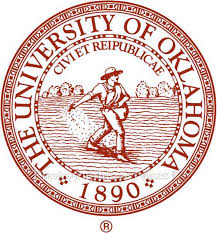Dengue Disease: Difference between revisions
No edit summary |
|||
| Line 1: | Line 1: | ||
{{Uncurated}} | {{Uncurated}} | ||
[[Category:Pages edited by students of Tyrrell Conway at the University of Oklahoma]][[Image:OULOGOBIANCO.JPEG|thumb|230px|left|University of Oklahoma Study Abroad Microbiology in Arezzo, Italy[http://cas.ou.edu/study-abroad/]]] | |||
==Etiology/Bacteriology== | ==Etiology/Bacteriology== | ||
===Taxonomy=== | ===Taxonomy=== | ||
Revision as of 13:18, 24 July 2015

Etiology/Bacteriology
Taxonomy
Group = Group IV positive-sense ssRNA virus | Order = Unassigned | Family = Flaviviridae | Genus = Flavivirus | species = Dengue Virus
|
NCBI Taxonomy: (DENV-1) (DENV-2) (DENV-3) (DENV-4) Genome: Dengue Virus |
Description
Pathogenesis
Transmission
Infectious dose, incubation, and colonization
Epidemiology
Virulence factors
Dengue
Like all Gram negative bacteria, EHEC outer membranes have an outer facing leaflet of lipopolysaccharide (LPS). LPS consists of lipid A, core polysaccharide, and O-Antigen, which consists of 40-80 repeating subunits of 4 sugars that in the case of E. coli O157:H7 is unique to the O157 serogroup, containing N-acetyl-d-perosamine, l-fucose, d-glucose, and N-acetyl-d-galactose. The core polysaccharide essentially is conserved in all E. coli ecotypes. Lipid A is the toxic component of LPS, also known as endotoxin, which is a heat-stable toxin. Lipid A consists of a phosphorylated disaccharide of glucosamine linked by a beta-1,6 linkage and modified by fatty acids, in addition to the first ketodeoxyoctanoate of the core polysaccharide. Endotoxin is released by cell lysis rather than being secreted. Endotoxin is less potent and less specific than exotoxins. Endotoxin can cause fever, hemorrhagic shock, and diarrhea.
Clinical features
Diagnosis
Treatment
Prevention
Host Immune Response
References
References
Created by {insert your names here}, students of Tyrrell Conway at the University of Oklahoma.
This template is just a general guideline of how to design your site. You are not restricted to this format, so feel free to make changes to the headings and subheadings and to add or remove sections as appropriate.
